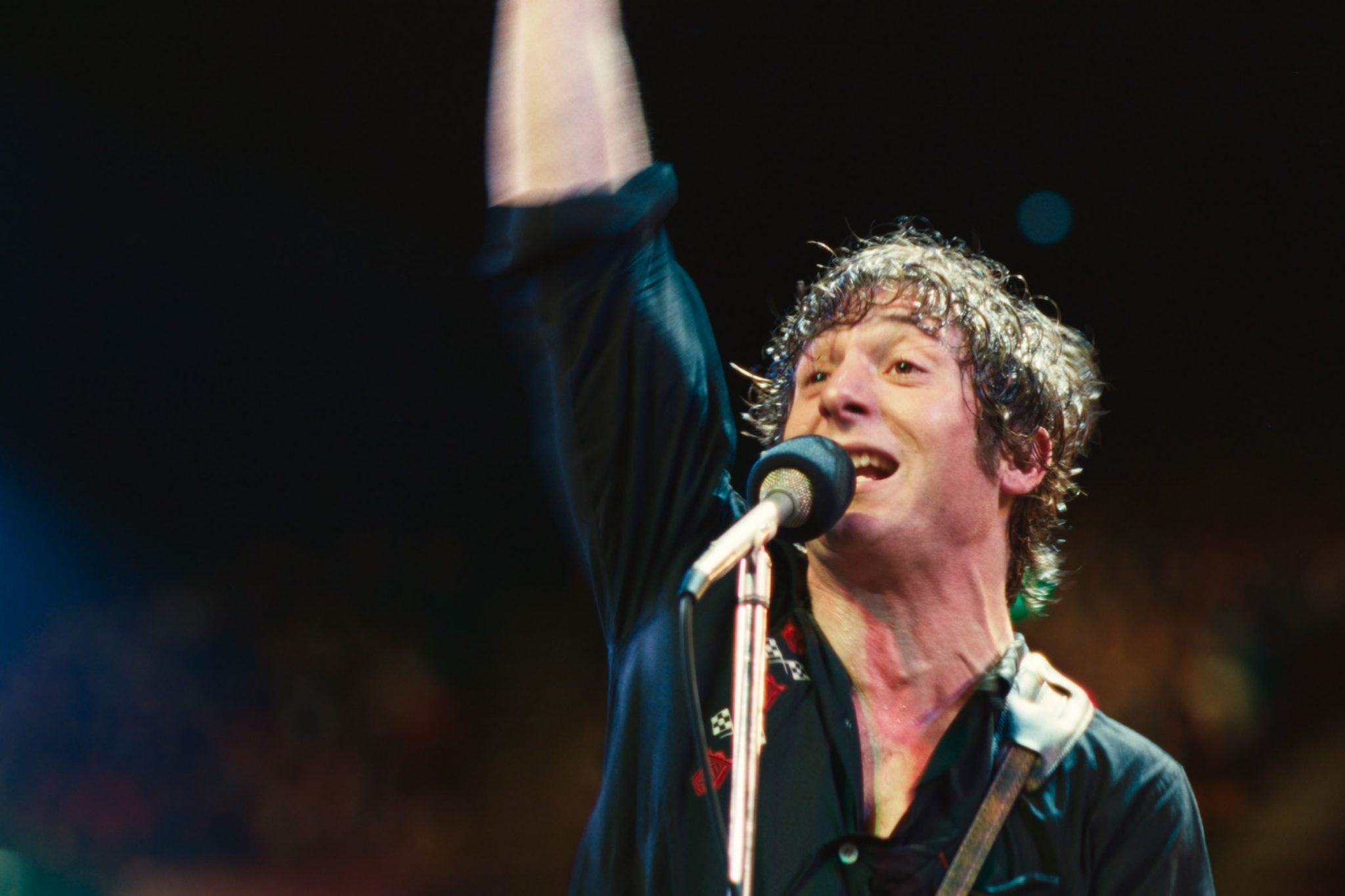A biopic about Bruce Springsteen would always be special to me.
I grew up in Freehold, New Jersey, hometown of The Boss. Just 10 minutes from my house, Springsteen: Deliver Me from Nowhere set up filming. My dad excitedly sent pictures from his office, as the downtown area reverted to its bustling past. When Springsteen himself appeared on set, I received a grainy candid not too dissimilar from a bigfoot sighting.
This all amounted to less than three minutes of screentime, but this meant something to me, man!
Released on Friday, I held Springsteen to near-impossible standards. It couldn’t just be good — lead star Jeremy Allen White needed to portray my hometown hero like no one before him could.
Unfortunately, the film is a by-the-numbers rockstar biopic, though its heart carries it through any pitfalls.
Springsteen starts where most biopics would end: the big concert. His biggest hit, “Born to Run” booms through a roaring crowd. His vocals are passionate. The lights are heavenly. It should be a cathartic victory.
But director Scott Cooper ensures these moments feel intentionally stressful. In a movie purposely defined by quiet, these scenes are cacophonous. The movie contrasts its muted tones with the harsh lights of The Stone Pony music club, Springsteen’s soft speaking tone with his wailing singing.
It’s hauntingly effective and serves to reinforce one central idea; Springsteen, disillusioned with fame, needs to re-discover himself.
[Embrace your inner theater kid with these Halloween musicals]
To do so, he must return to New Jersey and work through his personal demons. The most nagging being his deep-rooted troubles with his father. He does this by recording his album Nebraska — a defiantly bare and acoustic record.
Cooper is at his best when capturing New Jersey vistas. Springsteen’s getaway cabin is the film’s centerpiece and a breathtaking portrait of the idyllic Jersey lakeside. Classic Jersey Shore landmarks feel vibrant and lived-in.
In one memorable scene, Springsteen goes on a late-night date with his love interest Faye on the boardwalk. They have a heart-to-heart on a carousel, lit only by its warm glow. It evokes nostalgia for a moment in time that any viewer can relate to.
Like most biopics, Springsteen serves as a vehicle for its leading man. As Springsteen, White is witty and reckless with a dark undercurrent. Think of his portrayal of Lip from Shameless, but toned down and with a cheesy accent. It’s not particularly adventurous, but it still delivers.
White proves he can guide the movie through its most poignant themes. His interactions with his father Douglas, played by Stephen Graham, are succinct and moving.
Through a series of black-and-white vignettes, the film details the clash between a child Springsteen and his father. This culminates in a present-day conversation at a Los Angeles bar. Douglas, once an intimidating figure, is reduced to a former shell of himself.
It’s this relationship that guides Springsteen’s self-discovery. In a classic biopic songwriting montage, Springsteen finds inspiration from the 1958 murder spree that inspired the movie Badlands. Interspersed with flashbacks of childhood fights with his father, he rewrites the song to first-person.
Cooper couldn’t be more heavy-handed, but it effectively characterizes Springsteen’s self-destructive tendencies.
[Students are nuts for UMD’s squirrel watching club]
Springsteen lacks a strong supporting cast outside of Graham.
Springsteen’s manager Jon Landau, played by Jeremy Strong, represents the worst of this. When Springsteen’s sound inevitably clashes with record producers expecting his rockstar persona, Jon simply acts as the mouthpiece for Nebraska’s vision. Outside of that, he is boring and aimless, not helped by Strong’s uninspired performance.
While Odessa Young plays Faye excellently, biopic tropes hold her back. She devolves into a love interest who wants the rockstar to settle down with her. While she and White shine during an intense confrontation at a diner over Springsteen moving to California,it feels like a scene done a thousand times before.
We’ve seen it all before in A Complete Unknown, Rocketman or Bohemian Rhapsody. Why does the movie insist on following cliches when its intrigue lies in its unorthodox premise of Springsteen’s relationships?
This all seems in service of one cathartic moment that never quite delivers, a buildup to a climax that never happens. While Springsteen’s story has a satisfying conclusion, it never quite reaches the emotional high the movie teases.
Springsteen feels more like an interesting concept than a well-executed film. Look out for the inevitable Best Actor nomination for White, though it will be a shocking upset if he pulls off the win.



